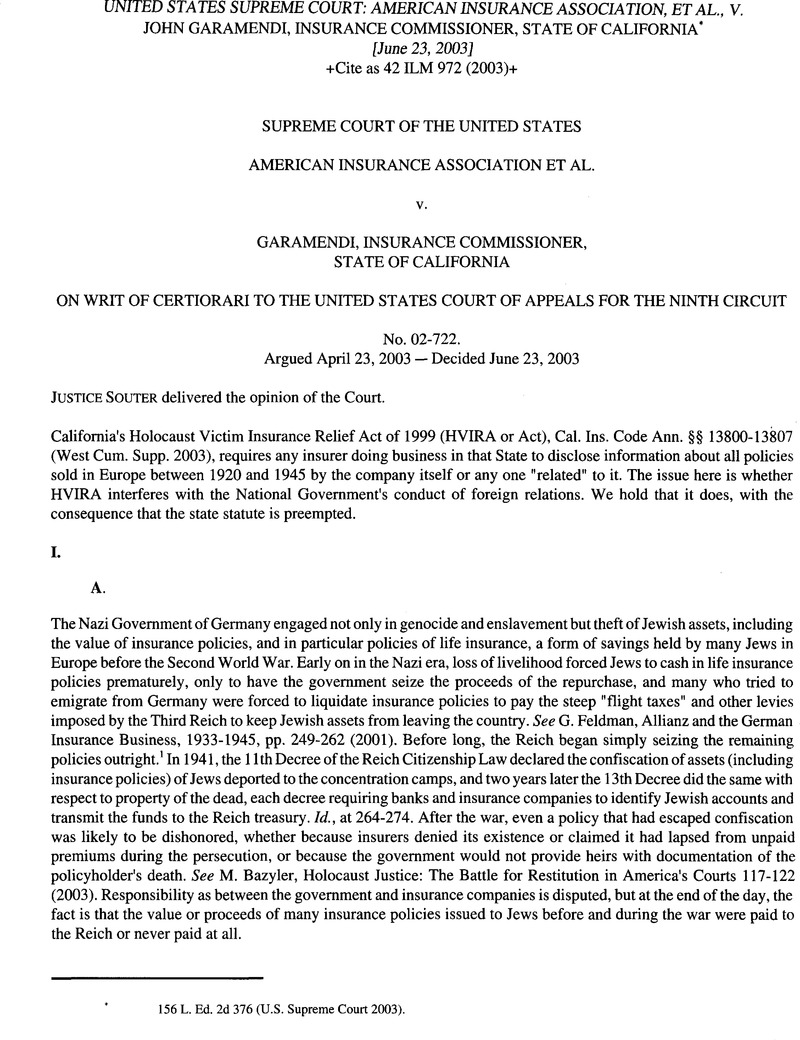Published online by Cambridge University Press: 27 February 2017

156 L. Ed. 2d 376 (U.S. Supreme Court 2003).
1 In addition, California may deem an insurer's or its affiliate's continuing failure to resolve Holocaust-era claims relevant marketplace information for California consumers. See Brief for Respondent 42-44; Brief for National Association of Insurance Commissioners as Amicus Curiae 11-13. The Court discounts the HVIRA's pursuit of this objective, stressing that the HVIRA covers only certain policies issued in Europe more than 50 years ago. Ante, at 27. But States have broad authority to regulate the insurance industry, Western ' Southern Life Ins. Co. v. State Bd. of Equalization ofCal, 451 U.S. 648, 653-655, (1981), and a State does not exceed that authority by assigning special significance to an insurer's treatment of claims arising out of an era in which government and industry collaborated to rob countless Holocaust victims of their property.
2 The executive agreements with Austria and France are comparable. See ante, at 8, and n. 3.
3 “One is compelled to conclude that there are agreements which the President can make on his sole authority and others which he can make only with the consent of the Senate (or of both houses), but neither Justice Sutherland [in United States v. Belmont, 301 U.S. 324 (1937)] nor any one else has told us which are which.” L. Henkin, Foreign Affairs and the United States Constitution 222 (2d ed. 1996).
4 The Court also places considerable weight on Crosby v. National Foreign Trade Council, 530 U.S. 363 (2000). As the Court acknowledges, however, ante, at 25, Crosby was a statutory preemption case. The state law there at issue posed “an obstacle to the accomplishment of Congress's full objectives under the [relevant] federal Act.” 530 U.S., at 373. That statutory decision provides little support for preempting a state law by inferring preclusive foreign policy objectives from precatory language in executive agreements.
5 The Court apparently finds in the executive agreements’ “express endorsement of ICHEIC's voluntary mechanism” a federal purpose to preempt any information disclosure mechanism not controlled by ICHEIC itself. Ante, at 24, n. 13. But nothing in the executive agreements suggests that the Federal Government supports the resolution of Holocaust era insurance claims only to the extent they are based upon information disclosed by ICHEIC. The executive agreements do not, for example, prohibit recourse to ICHEIC to resolve claims based upon information disclosed through laws like the HVIRA. *326 F.3d 230 (D.C. Cir. 2003).